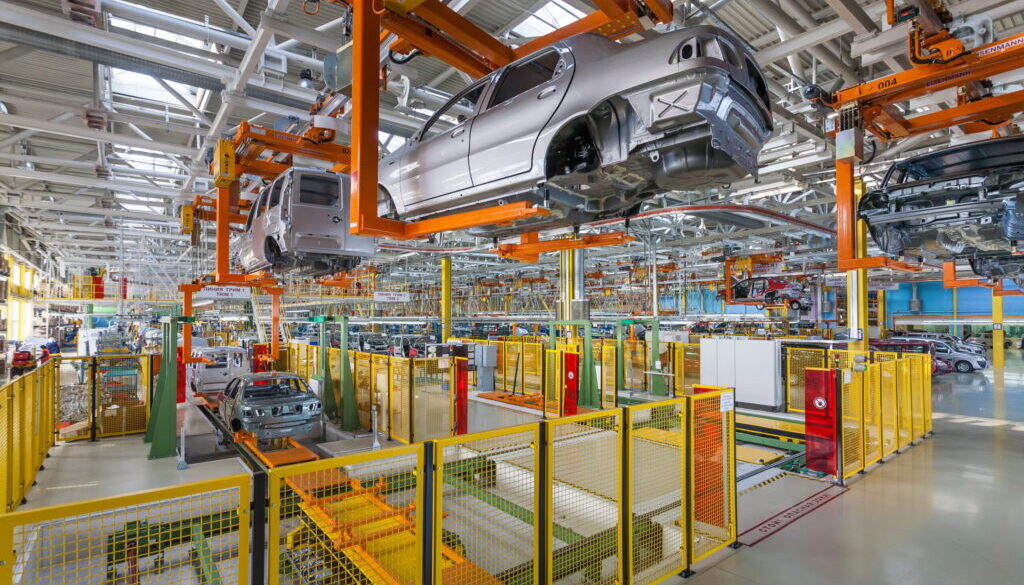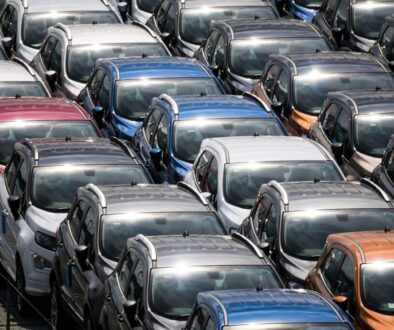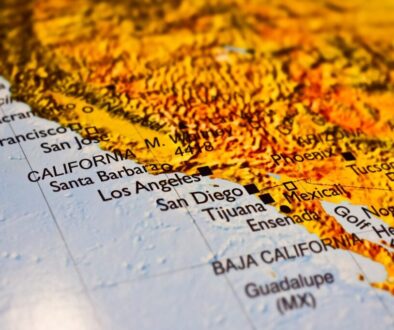An electric future for automakers in Mexico
Automakers in Mexico export more than 80% of their production and comprise the fourth-largest concentration of automobile exporters in the world. This position could boost the country’s potential to manufacture electric cars.
A collection of internal combustion engine trucks and Ford’s 100% electric F-150 Lightning pickup made up the backdrop on the stage where Joe Biden challenged the automotive industry earlier this year. “The future of the automotive industry is electric. There is no going back,” asserted the president of the world’s number one economy. Automakers in Mexico, in particular, took careful note of this statement.
This proclamation occurred on May 19, 2021, at the Ford electric vehicle plant in the US state of Michigan. Almost 4,000 kilometers away, in Mexico City, José Zozaya, president of the Mexican Association of the Automotive Industry (AMIA), recognized that a significant business opportunity appeared on the horizon for automotive manufacturers in his country.
“The global automotive industry is a pioneer in the use of clean energy technologies and the manufacture of electric vehicles. It is very important to consider the commitments that global OEMs have made regarding the future use of clean energy in the vehicles that they produce, as well as in the energy used at their assembly plants,” noted José Zozaya. Global automakers are seeking to implement these measures in the 2035 to 2050 time frame.
The road to an electric future seems to be approaching. By 2040, it is estimated that 78% of the world’s vehicle fleet will be made up of cars with environmentally friendly technologies. These include electric cars and hybrids, according to the KPMG “Global Automotive Executive Survey 2020” study.
As the fourth largest automobile exporter, automakers in Mexico will be advantageously positioned to take advantage of the demand present in the US market and the entry into force of the renewed Free Trade Agreement between Mexico, the United States, and Canada (USMCA) to clearly position itself as one of the winners in the race to manufacture electric cars.
Mexico’s automotive sector exports more than 80% of its production, and the United States and Canada are the main destinations for the products that are manufactured by automakers in Mexico.
A “golden opportunity” that Mexico is well-positioned to capitalize upon is the arrival of new production lines from companies seeking to access the lucrative North American market. Future growth in electric vehicle production is likely to propel Mexico into one of the first three positions of global automotive producer, says Héctor Romo, Leading Partner of Taxes of the Bajío Region at KPMG Mexico.
Asked if Mexico could become one of the leading countries in the export of electric cars, José Zozaya responds emphatically: “Sure. We are already in production. We believe that this is going to grow little by little because an entire infrastructure must be built to achieve the supply of clean energy that will be required to grow manufacturing operations.”
Additionally, the executive observes that the position of automakers in Mexico as exporters must be strengthened by government and business efforts that avoid letting this trend toward the use and production of clean technologies pass. “Mexico should not neglect this development (the use of non-fossil fuels), because its manufacturers could be left out of the growing production of clean vehicles.”
Consumers also demand infrastructure for the use of these types of vehicles. Providing a seamless charging experience is essential to the mainstream adoption of electric cars, as 84% of consumers place responsibility for the charging infrastructure on OEMs.
Seventy-three percent of those surveyed by KPMG consider that mineral resources, such as the lithium reserves that a country has, determine the preferred transmission technology, says Héctor Romo.
The head of the Ministry of Economy, Tatiana Clouthier, said last May that the opening of the first country’s first lithium battery plant is certain to provide a significant boost to the electric car industry and automakers in Mexico.
“If things go well, later in 2021 we will be laying the first stone for a company that will be installed to produce batteries,” she said, after participating in the meeting of the International Trade Commission of the USMCA.
At present, the most important issues to overcome are the current challenges that are being experienced due to the coronavirus pandemic. Automakers in Mexico must ensure that the industry is ready for the changes that are coming in consumer trends. They must act to create the conditions needed to guarantee sustained and viable production in the country over the long term.
The current outlook for automakers in Mexico
José Zozaya considers himself a man of challenges. For him, 2021 is a year of hope. As such, he believes that the future will be positive when the vaccine against Covid-19 is widely distributed. “Once the health crisis is under control, I am sure that the financial recovery will be much faster. The automotive sector has clearly demonstrated this”, says the president of the Mexican Association of the Automotive Industry (AMIA).
However, the automotive industry has been faced, since the first months of 2021, with the lack of micro components in the Mexican market, which has limited the production of units worldwide after the health crisis last year.
“As a result of epidemic-related supply chain disruptions, the lack of these electronic inputs could cause the production of nearly 2 million vehicles to be limited,” explains José Zozaya. He hopes that as the year progresses the production of micro-components will be increased.
The pandemic has affected the supply chain. The shipowners are thinking about how to mitigate the risks in this area in the face of a new eventuality, as happened in 2020.
Zozaya went on to add that “The automotive sector is the fundamental sector for the Mexican economy in general. All of us, governments and the automakers in Mexico themselves, must work to make it grow and create more jobs for more Mexicans.”





